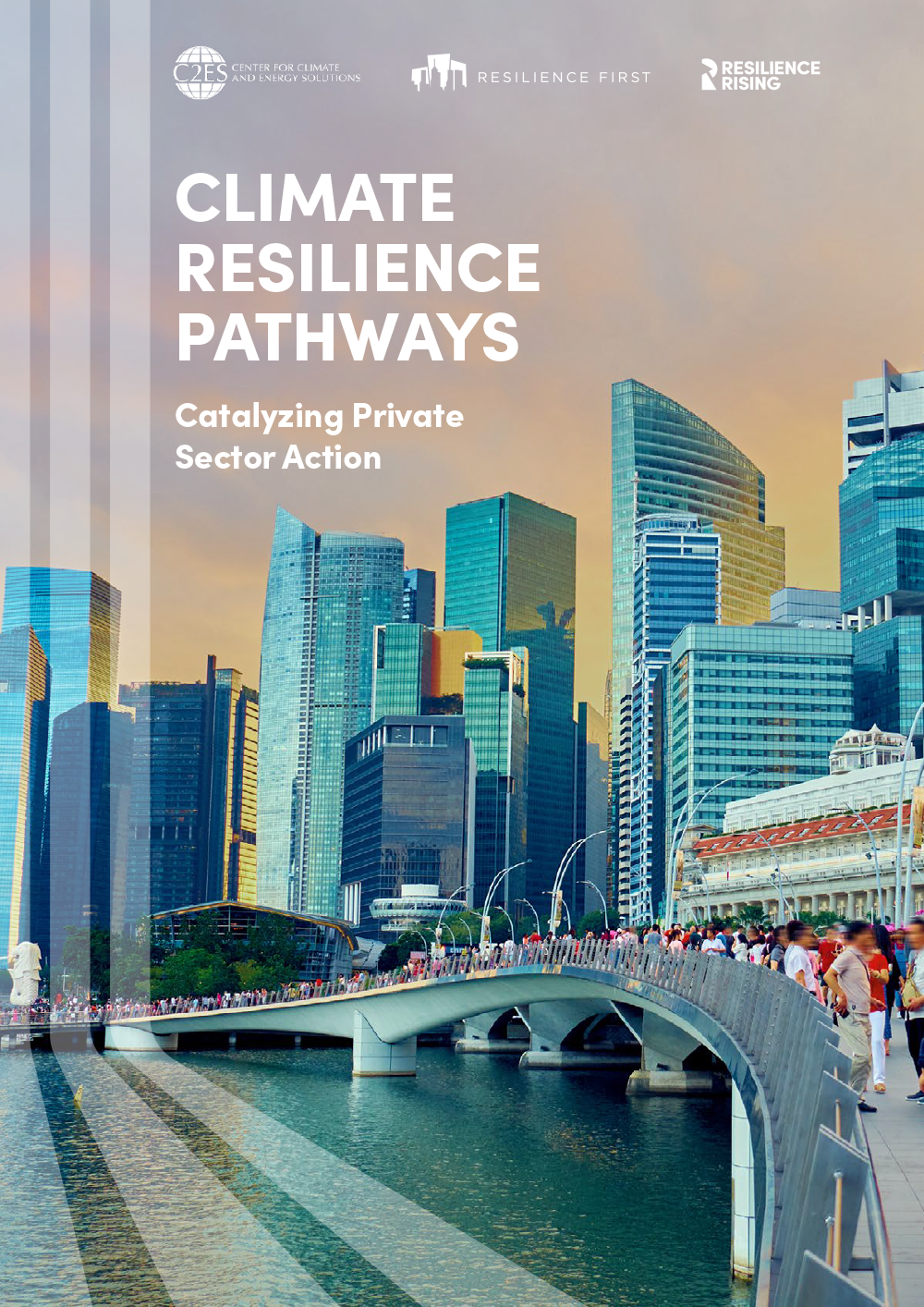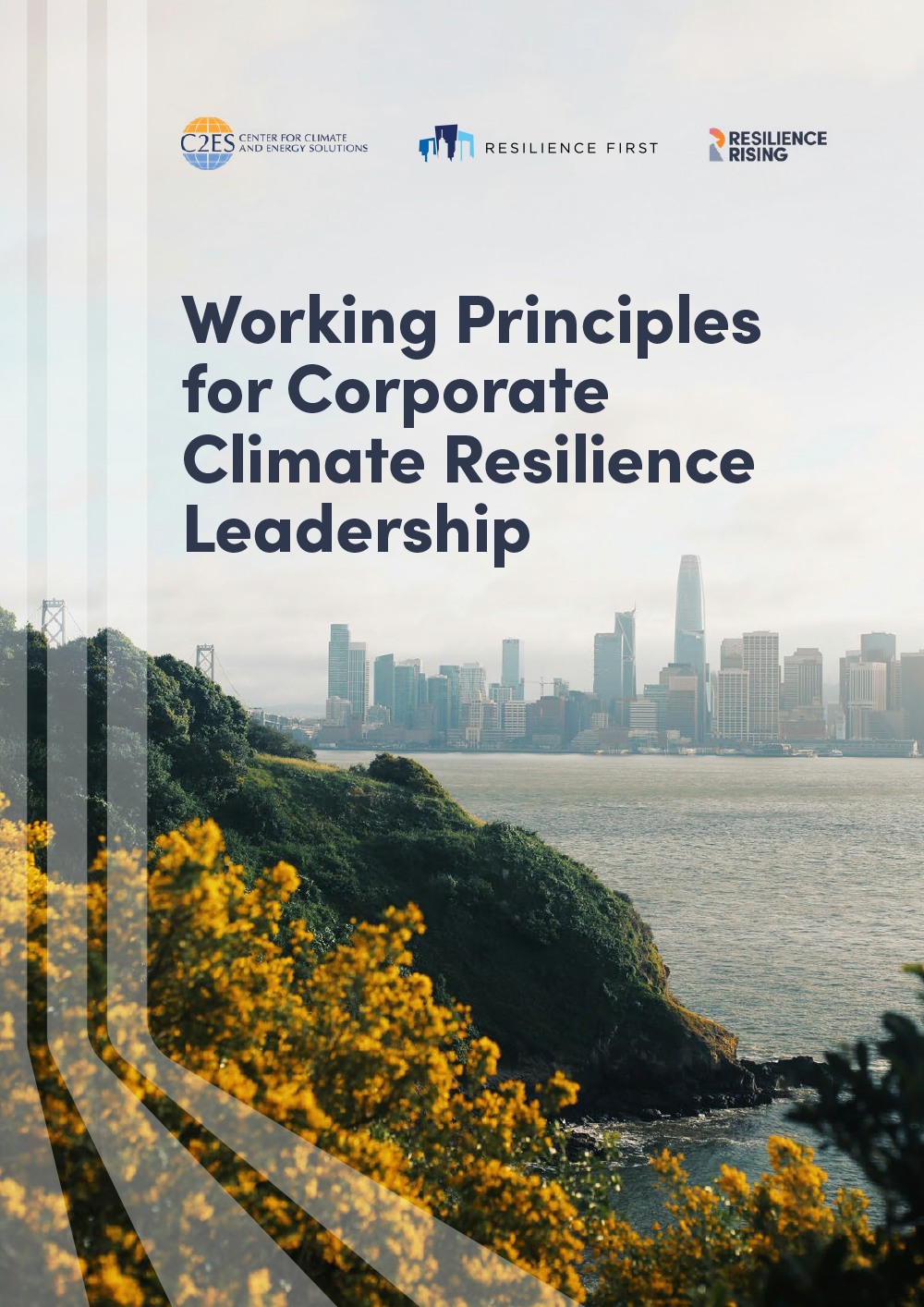Climate Resilience Pathways: Catalyzing private sector action
The innovations and investments businesses make can be pivotal in fortifying and transforming operations, supply chains, and communities to prepare for and adapt to climate threats.
As climate-related risks loom large over the global economy, no business remains untouched. The compounding impacts of climate change are reshaping the global business landscape, affecting every dimension of an organisation. These changes will persist even with significant reductions in greenhouse gas emissions, demanding immediate and strategic action from the private sector.
In response, Resilience First, in partnership with Washington DC–based think tank Center for Climate and Energy Solutions (C2ES), launched the Climate Resilience Foresight Series in 2025.
The Climate Resilience Foresight Series
The series applied Resilience First’s standards-aligned Model for Organisational Resilience, examining climate impacts across five essential organisational dimensions:
- Environment – Dependence on natural resources and ecosystem services
- Infrastructure and Operations – Built environment, supply chains and operational continuity
- Workforce – Employee health, safety and productivity
- Finance – Economic impacts, insurance and investment decisions
- Social and External Ecosystems – Community engagement and stakeholder relationships
Using the Model’s measurement-driven approach to resilience, participants identified business and service outcomes within each dimension that could be affected by climate shocks. Participants explored potential indicators to assess resilience and discussed initial ways to stress test these outcomes.
Following the culmination of six corporate dialogues across 2025, C2ES and Resilience First have produced a summary of the programme’s learnings.
The report sets out short-, medium- and long-term actions organisations can begin taking to strengthen their resilience to climate change, alongside recommendations for different role holders across organisations.
In 2026, the programme will work with companies on applying the Model for Organisational Resilience to their businesses, in particular to build resilience to two universal business threats: extreme heat and water stress.
In 2024 Resilience First, Resilience Rising and C2ES launched the Corporate Climate Resilience Pathways Initiative, which aims to empower companies to enhance their resilience and contribute to a global ecosystem of resilient business practices. As the backbone of the global economy, businesses play a pivotal role in driving forward resilience and mitigating the dire impacts of climate change. Together, we published a report and crafted a set of guiding principles aimed at inspiring decisive, private-sector action.[/pwrap]


Working Principles for Corporate Climate Resilience Leadership
Together with cross-sector stakeholders, we’ve developed guiding principles that reflect how companies can demonstrate leadership in advancing resilience to the physical impacts of climate change.
Download the report and principles here
This initiative stands as an important signal to businesses, investors, and policymakers that there exist companies deeply committed to advancing climate resilience.
Building on two decades of industry experience in measuring greenhouse gas emissions and setting climate targets, the private sector has been able to compete, attract investment, and engage in policy discussions to drive decarbonisation. Similar dynamics are required to elevate business action on climate resilience, ensuring a thriving society in an uncertain future. Currently, diverse approaches to measuring the physical risks of climate change and to building resilience result in measurement and reporting inconsistencies, a lack of transparency, and missed opportunities for collaboration and collective impact across sectors.
The business community requires a new way of responding to climate shocks in order to cement its role as a driver of enhanced resilience and global stability – one that is comprehensive, inclusive, aligned, and sustainable over time.
By enabling transformations that substantially scale-up investment in climate resilience, our initiatives will lead to more resilient businesses, improve the adaptive capacity of the communities where businesses operate, and position businesses as advocates for policies that simultaneously strengthen private sector resilience while accelerating deep decarbonisation efforts.



